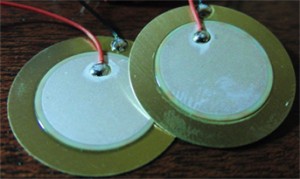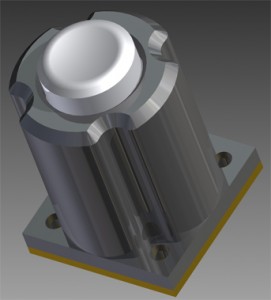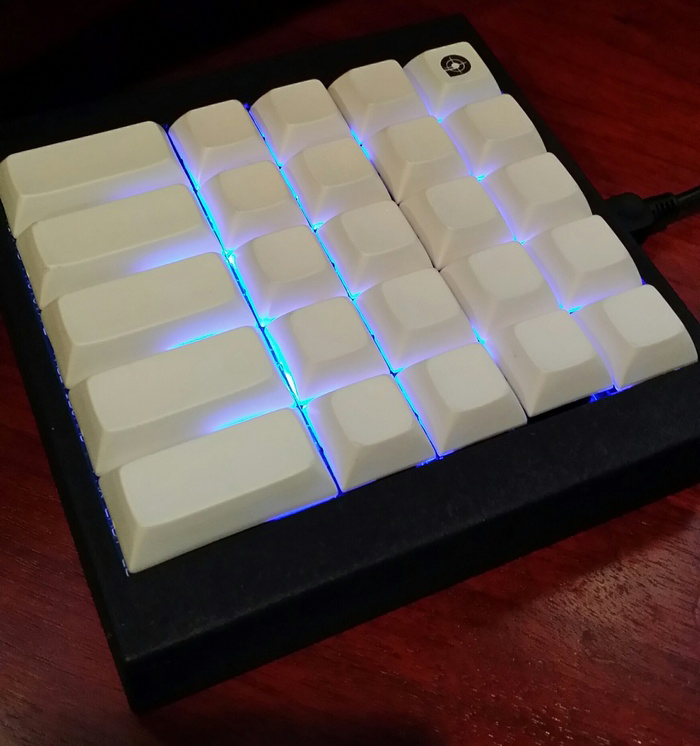Aimpad® was envisioned by a passionate gamer frustrated with control mechanisms tied to the PC keyboard. The first frustration came when playing the game Half Life 2. During this game, Gordon Freeman jumps in a dune buggy with a mounted gun on it. The experience of driving this vehicle for the first time was awesome, but the actual control over the vehicle was atrocious. Aiming the gun with the mouse was excellent, but you had to drive with the WASD keys on the keyboard and because of their digital nature it was cumbersome, awkward, and annoying. It was then that the wheels in this gamer’s head began to turn and think of a better way to control the games he loved. Why were there no analog keyboards on the market? Was it because it would require developer support to rewrite all the games to incorporate the technology? Was it because the technology was too expensive? Maybe no one else had really thought of the idea.
Several years passed, but every time a game was played where the WASD keys were used it created a barrier to immersion, or created a source of frustration over the lack of fluid control, the thought kept coming back: “There has to be a better way. Surely someone will come up with a better way.”
Several more years passed, and no one came up with a way to use analog WASD keys on a keyboard. At a conference, the topic of discussion came up and the idea was pitched to some investors who immediately latched onto the idea and wanted to fund the creation of Aimpad technology.
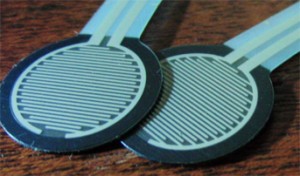
Research into how to solve the problem began. Several different solutions to an analog keyboard were considered. Potentiometers were too awkward and didn’t fit the physical constraints of a keyboard very well. Hall effect sensors were too expensive and adding magnets to the keyboard switch messed with the “feel”. The very first prototype hacked apart an existing game pad and utilized pressure sensors that measured the pressure applied to the button. It worked! But, it was soon realized that pressure sensitivity did not translate well into gaming control because there was no tactile feedback of the keys. If you pressed really hard the game characters would react appropriately, but you had no way to tell if you were pressing hard enough to be moving as fast as possible, which led quickly to fatigue and unnecessary strain. It was realized that pressure was a poor measure for an analog gaming key. It was how far down the key was being pressed that was more meaningful.
Research continued on different ways to make an analog key using existing technology, and everything on the market was either too complicated or expensive to integrate into a mechanical keyboard. Something completely new would have to be created. The underlying technology of Aimpad uses patented technology that measures how far down the key is pressed with exceptional accuracy. This translates well into gaming control because there is a very distinct bottoming out of a key that indicates it is being pressed as far down as it can go, reducing unnecessary fatigue. There is a very clear relationship on how far down the key is pressed and how it directly impacts movement on screen.
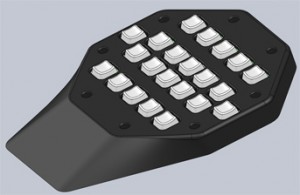
With the recent explosion of mechanical keyboards (particularly those based on the Cherry MX Swtich), we decided to integrate our technology with existing switches rather than producing a brand new switch. Our current prototypes use very small sensors that can easily and cheaply be integrated into existing mechanical keyboard switch technologies.
Since we first publicly introduced the technology at PAX East, we have gone through several iterations to fine tune the technology, making it cheap and easy to implement, and produce the best possible analog gaming keyboard experience possible. Our last version, called the “R5”, was the culmination of thousands of hours of work, and we were very pleased with how it turned out.
During CES 2018, a partnership with Cooler Master was announced along with a new keyboard featuring Aimpad technology called the MK 850. This keyboard packed every possible cutting edge gaming feature in to a very high-end and stunning package. The Cooler Master MK850 was released in the U.S. Q1 of 2019 and received excellent reviews from many publications.
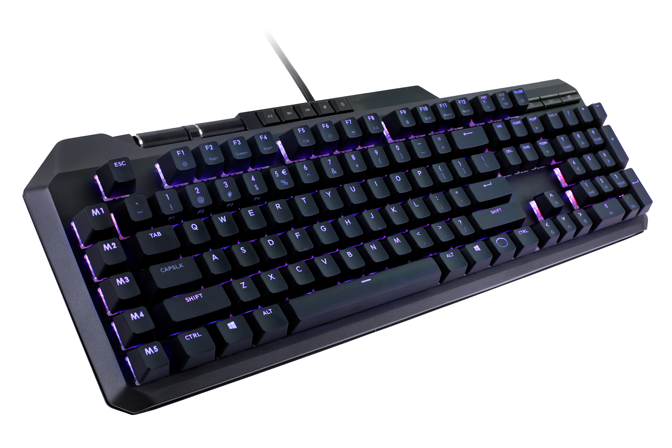
Our next collaboration project is ControlPad, which was successfully Kickstarted:
ControlPad – 24 Keys with Analog Control
Cooler Master is raising funds for ControlPad – 24 Keys with Analog Control on Kickstarter! Mechanical Keypad with the Power of Aimpad Pressure Sensitive Technology
We look forward to this project and hope it will leave a lasting impression on the gaming and professional markets


